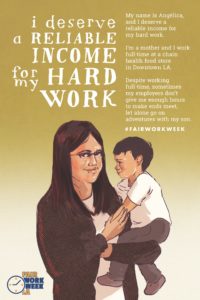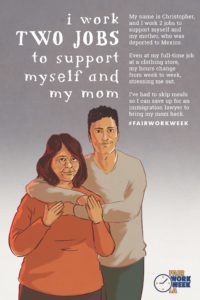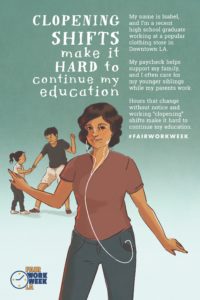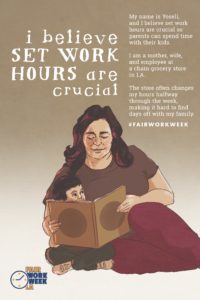Research and organizing tools on how unstable work hours affect the health and mental health of workers and families.
Overview
Jobs and income are arguably the most important factors driving our health and well-being. How much or little we work — and how much advance notice we receive for work — are an important part of the picture.
Consider this: unstable work hours, which are the norm for many retail workers, are associated with higher stress levels. And chronic stress is linked to health issues like heart disease and diabetes. Working too few hours means people who work in retail have lower incomes, and as a result, decreased access to quality housing, education, child care and all the other supports we need to live a healthy life. On the flip side, working too many hours or back-to-back shifts contributes to a lack of sleep and reduced time to care for our children, older family members, and ourselves.
Project Information
Our work consists of 4 parts:
- We worked with The Center for Popular Democracy and the Fair Workweek Initiative on a fact sheet lifting up the health impacts of unstable work hours and on an advocacy toolkit to bring a health lens into fair workweek campaigns.
- In partnership with Working Washington, we produced a research report about the health impacts of unstable work hours for retail workers in Seattle.
- HIP staff testified at a city council meeting in Emeryville, CA in favor of a fair workweek ordinance.
- We worked with Los Angeles Alliance for a New Economy (LAANE) to interview workers and develop social media tools and posters about how unstable work hours affect workers, their families, and their health in Los Angeles.
Learn More
Have questions or want a copy of the Organizing for #HealthyHours Toolkit? Contact Sari Bilick (sari@humanimpact.org).






